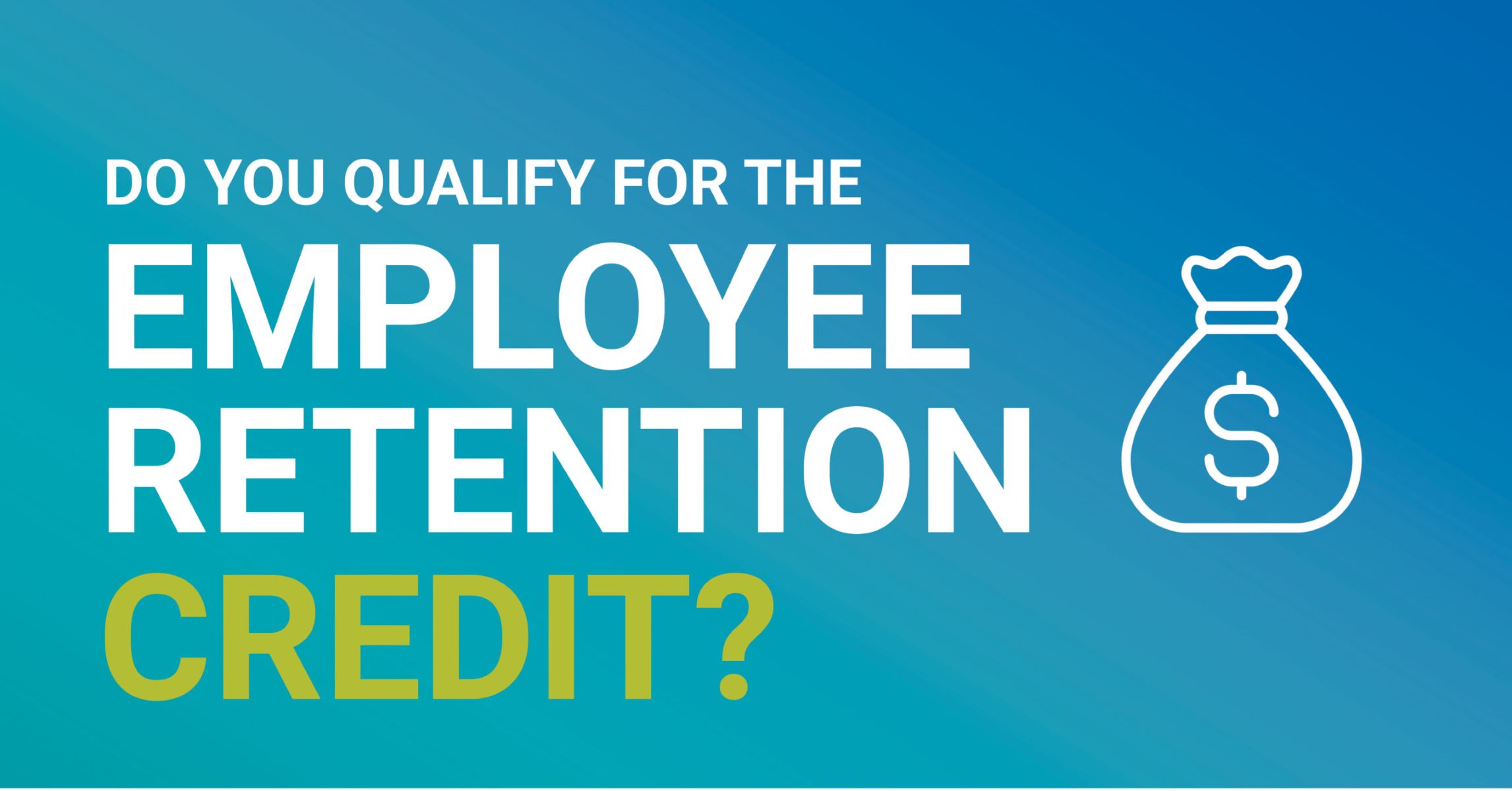

Finance
What Is A Tradeline On A Credit Report
Published: October 21, 2023
Learn what a tradeline is on a credit report and how it impacts your finances. Gain insights into the significance of tradelines for managing your credit and improving your financial standing.
(Many of the links in this article redirect to a specific reviewed product. Your purchase of these products through affiliate links helps to generate commission for LiveWell, at no extra cost. Learn more)
Table of Contents
Introduction
When it comes to managing your finances and building a strong credit history, understanding the concept of tradelines is crucial. Tradelines play a significant role in determining your creditworthiness and can greatly impact your credit scores. In this article, we will explore what a tradeline is and how it affects your credit report.
A tradeline refers to any account listed on your credit report, including credit cards, mortgages, auto loans, and personal loans. Each tradeline provides information about your payment history, outstanding balances, credit limits, and the duration of the account. Lenders and credit reporting agencies use this information to assess your creditworthiness and determine if you qualify for new credit.
There are two main types of tradelines: primary tradelines and authorized user tradelines. Primary tradelines are accounts that you have opened and are solely responsible for. These can include credit cards, loans, or mortgages that are in your name. Authorized user tradelines, on the other hand, are accounts where you have been granted access to someone else’s credit card. By being added as an authorized user, the history and details of that account are reflected on your credit report as well.
Tradelines play a vital role in establishing and maintaining a good credit history. Lenders often review your tradelines to determine if you are a responsible borrower. A positive payment history and low credit utilization on your tradelines can significantly boost your credit scores, making it easier to qualify for loans, credit cards, and other forms of credit. On the other hand, negative information such as late payments or high outstanding balances can have a detrimental impact on your creditworthiness.
Understanding how tradelines affect your credit scores is crucial. The payment history, credit utilization, and the age of your tradelines are key factors that credit scoring models consider. Consistently making on-time payments and keeping your credit utilization low can help improve your credit scores over time. Additionally, having a mix of different types of tradelines, such as credit cards, loans, and mortgages, can also positively impact your creditworthiness.
In the following sections of this article, we will delve deeper into how you can manage your tradelines effectively, the process of adding tradelines to your credit report, and potential risks and considerations associated with tradelines. Understanding these aspects will empower you to make informed decisions and take control of your credit health.
Definition of a Tradeline
In the world of finance, a tradeline is a record of credit activity that is associated with an individual or business. It represents accounts that are reported to the credit bureaus and includes information such as the borrower’s payment history, outstanding balances, credit limits, and the duration of the account. Tradelines are a crucial component of a person’s credit report, providing lenders and credit scoring models with valuable data to determine creditworthiness.
Every time you open a credit account, whether it is a credit card, loan, mortgage, or any form of credit, it becomes a tradeline. These tradelines are maintained by creditors, who report the account activity to the credit bureaus on a regular basis.
Tradelines can be either primary or authorized user tradelines. Primary tradelines are accounts that are opened in your name, and you are solely responsible for managing them. These include credit cards, loans, mortgages, and other accounts that are under your name. The payment history and activity on these tradelines directly impact your credit scores.
An authorized user tradeline, on the other hand, is an account that someone else has added you to as an authorized user. This means that you have been granted access to use the account, but you are not responsible for the payments or managing the account. However, the history and details of this account will still be reflected on your credit report, which can potentially affect your creditworthiness.
When lenders evaluate a person’s creditworthiness, they closely examine their tradelines. They look at factors such as the number of tradelines, the types of accounts, the payment history, credit utilization, and the age of the accounts to assess the borrower’s credit risk. Maintaining a positive payment history, low credit utilization, and a diverse mix of tradelines can have a positive impact on your credit scores and make you more attractive to lenders.
It’s important to note that not all tradelines have the same weight in determining creditworthiness. For example, a long-standing credit card with a low balance and a perfect payment history carries more weight than a recently opened account with a high balance and missed payments. Each tradeline contributes differently to your overall credit profile.
Overall, understanding the definition and significance of tradelines is essential for managing your credit effectively. By keeping a track of your tradelines and ensuring that they are in good standing, you can establish a strong credit history, improve your credit scores, and open doors to better financial opportunities.
Types of Tradelines
Tradelines come in various forms and represent different types of credit accounts. Understanding the different types of tradelines can help you better navigate the credit landscape and make informed financial decisions. Here are some common types of tradelines:
- Credit Cards: Credit card tradelines are the most common type and play a significant role in establishing credit history. They can include both traditional credit cards and store credit cards. Having a mix of credit cards, with a good payment history and low credit utilization, can positively impact your credit scores.
- Auto Loans: Auto loan tradelines represent accounts related to financing a vehicle purchase. These tradelines indicate the amount borrowed, the loan term, monthly payments, and the account history. Making timely payments on auto loans can help build a positive credit history.
- Mortgages: Mortgage tradelines pertain to home loans taken out to purchase property. These tradelines can significantly impact your creditworthiness, as mortgage payments are typically larger and have a long-term commitment. Consistent on-time payments on mortgage tradelines can strengthen your credit profile.
- Personal Loans: Personal loan tradelines refer to loans that are not secured by any collateral and are typically used for various purposes like debt consolidation, home improvement, or medical expenses. Responsible management of personal loan tradelines can demonstrate your ability to handle different types of credit.
- Student Loans: Student loan tradelines are associated with educational loans used to finance higher education. These tradelines can have a significant impact on your credit profile, as they tend to have large loan amounts and longer repayment periods. Paying student loans on time can help establish a positive credit history.
- Business Loans: If you own a business, you may have business loan tradelines. These tradelines represent loans made to fund business operations or expansion. Responsible management of business loan tradelines can improve your business’s creditworthiness and open up opportunities for future financing.
- Authorized User Tradelines: As mentioned earlier, authorized user tradelines are accounts that you have been granted access to as an authorized user. These tradelines could include credit cards or other accounts where someone else is the primary account holder. Being added as an authorized user to a tradeline can help build credit history, but it’s important to ensure that the primary account holder has a positive payment history.
These are just a few examples of the types of tradelines that can appear on a credit report. Each tradeline has its own significance in determining your creditworthiness, and it’s important to maintain a positive payment history and responsible credit utilization across all types of tradelines.
Understanding the different types of tradelines and their impact on your credit profile can help you strategize and manage your credit effectively. By maintaining a healthy mix of tradelines and demonstrating responsible credit behavior, you can build a strong credit history and increase your chances of obtaining favorable credit terms in the future.
Importance of Tradelines
Tradelines play a crucial role in the world of credit and finance. They provide lenders and credit reporting agencies with valuable information about an individual’s or business’s credit history and financial responsibility. Understanding the importance of tradelines can help you navigate the credit landscape and make informed decisions to build and maintain a strong credit profile. Here are some key reasons why tradelines are important:
- Credit Evaluation: Tradelines are one of the primary factors that lenders evaluate when assessing creditworthiness. Lenders review your tradelines to determine if you have a history of responsible borrowing and timely payments. A positive credit history reflected in your tradelines can make you more attractive to lenders and increase your chances of getting approved for loans, credit cards, and other forms of credit.
- Credit Scores: Tradelines have a significant impact on credit scores, which are used by lenders to gauge your creditworthiness. Factors such as payment history, credit utilization, and the age of tradelines are considered in credit scoring models. Maintaining a positive payment history, utilizing credit responsibly, and having a diverse mix of tradelines can contribute to higher credit scores, making it easier to access better loan terms and interest rates.
- Better Loan Terms: Having positive tradelines can open up opportunities for more favorable loan terms. Lenders are more likely to offer lower interest rates and higher credit limits to borrowers with strong credit profiles. This can result in significant savings over time and make borrowing more affordable.
- Building Credit: Tradelines play a vital role in establishing and building credit. If you are new to credit or want to improve your credit history, starting with one or more tradelines can help you establish a positive credit record over time. Making consistent on-time payments and managing your credit responsibly can lead to better tradelines and improved creditworthiness.
- Access to Financial Opportunities: Positive tradelines can open doors to various financial opportunities. A strong credit profile can make it easier to secure rental properties, get approved for utility services without a deposit, and even qualify for certain job positions that require a good credit history. Having a healthy credit report through responsible tradeline management can provide you with a range of possibilities.
- Future Borrowing: Tradelines play a significant role in your credit history, which is often considered by lenders when evaluating loan applications. By maintaining positive tradelines and demonstrating responsible credit management, you are more likely to have a solid credit history that can facilitate future borrowing needs, such as buying a home or starting a business.
It is important to recognize the importance of tradelines in managing your credit effectively. By maintaining a positive payment history, utilizing credit responsibly, and managing your tradelines wisely, you can build a strong credit profile that opens doors to various financial opportunities, saves you money, and improves your overall financial well-being.
How Tradelines Impact Credit Scores
Tradelines have a significant impact on credit scores, as they provide valuable information about an individual’s credit history and financial responsibility. Credit scores, such as FICO and VantageScore, use complex algorithms to analyze various factors, including tradelines, to determine a person’s creditworthiness. Understanding how tradelines affect credit scores can help you make strategic decisions to improve and maintain a strong credit profile. Here are some key ways in which tradelines impact credit scores:
- Payment History: Payment history is one of the most crucial factors considered in credit scoring models. Consistently making on-time payments on your tradelines demonstrates financial responsibility and positively impacts your credit scores. Late payments or missed payments, on the other hand, can significantly lower your credit scores.
- Credit Utilization: Credit utilization refers to the percentage of available credit that you are currently using. It is calculated by dividing your total outstanding balances by your total credit limits. Tradelines play a crucial role in determining your credit utilization ratio. Maintaining a low credit utilization ratio, ideally below 30%, can boost your credit scores. It shows that you are not overly reliant on credit and can manage your debts responsibly.
- Length of Credit History: The age of your tradelines is an essential factor in credit scoring models. Tradelines that have been open for a long time indicate a longer credit history, which can have a positive impact on credit scores. It shows that you have a track record of managing credit responsibly over an extended period. Therefore, it is generally beneficial to keep older tradelines open, as they can contribute to a stronger credit profile.
- Credit Mix: Credit scoring models also consider the types of tradelines in your credit history. A diverse mix of tradelines, such as credit cards, loans, and mortgages, can positively impact your credit scores. It demonstrates your ability to handle different types of credit and manage your debts effectively. However, it’s important to note that managing multiple tradelines responsibly is key, and taking on excessive debt can have a negative impact.
- New Credit Inquiries: When you apply for new credit, it typically results in a hard inquiry on your credit report. While a single hard inquiry may have a minimal impact on your credit scores, multiple inquiries within a short period can negatively affect your scores. Each new tradeline created as a result of new credit can impact your credit utilization and credit history. Therefore, it’s important to be strategic about applying for new credit and avoid unnecessary inquiries.
- Authorized User Tradelines: Being added as an authorized user to someone else’s tradeline can potentially impact your credit scores. If the primary account holder has a positive payment history and low credit utilization on the account, it can reflect positively on your credit report. However, it’s essential to ensure that the primary account holder manages the tradeline responsibly, as any negative activity can also impact your credit scores.
It is crucial to understand that the impact of tradelines on credit scores may vary depending on individual circumstances. Each credit reporting agency and credit scoring model may have slightly different algorithms for calculating credit scores. However, by maintaining a positive payment history, keeping credit utilization low, managing a diverse mix of tradelines, and being vigilant about new credit inquiries, you can positively impact your credit scores and maintain a healthy credit profile.
How to Manage Tradelines
Managing your tradelines effectively is crucial for maintaining a strong credit profile and improving your creditworthiness. By implementing good practices and staying proactive, you can ensure that your tradelines reflect positively on your credit report. Here are some key tips to help you manage your tradelines:
- Review Your Credit Report: Regularly review your credit report from all three major credit bureaus – Equifax, Experian, and TransUnion. Verify that all the tradeline information is accurate and up-to-date. Look for any errors, such as incorrect payment information or accounts that aren’t yours, and promptly dispute them with the credit bureaus.
- Make On-Time Payments: Pay all your tradelines on time to maintain a positive payment history. Late payments can have a significant negative impact on your credit scores. Set up reminders or automatic payments to ensure you never miss a payment. If you’re struggling to make payments, contact your creditors to discuss potential payment arrangements or hardship programs.
- Keep Credit Utilization Low: Aim to keep your credit utilization ratio, which is the amount of credit you’re using compared to your total credit limits, below 30%. High credit utilization can negatively affect your credit scores. Pay down your balances and avoid maxing out your credit cards to improve your credit utilization and overall creditworthiness.
- Avoid Closing Old Accounts: Consider keeping longstanding tradelines open, even if you’re no longer actively using them. The age of your tradelines contributes to the length of your credit history, which is an important factor in credit scoring models. Closing old accounts may shorten your credit history and impact your credit scores.
- Be Mindful of New Credit: Before applying for new credit, carefully consider the potential impact on your credit scores. Each new credit application typically results in a hard inquiry, which can temporarily lower your credit scores. Limit the number of new credit applications and only apply for credit when necessary.
- Create a Budget: Establish a budget to manage your finances effectively. By tracking your income and expenses, you can ensure that you have enough funds to make timely payments on your tradelines. A budget also allows you to prioritize debt repayments and avoid excessive borrowing.
- Monitor Your Credit: Stay vigilant and regularly monitor your credit for any changes or unauthorized activity. Consider signing up for credit monitoring services that provide alerts for significant changes to your credit report. Monitoring your credit allows you to identify any issues early on and take appropriate action.
- Seek Professional Help if Needed: If you’re struggling to manage your tradelines or have significant credit challenges, consider seeking assistance from credit counseling agencies or financial professionals. They can provide guidance, help you create a debt repayment plan, and offer strategies to improve your credit health.
By following these tips and staying proactive, you can effectively manage your tradelines and optimize your credit profile. Remember that responsible credit management and maintaining good financial habits are essential for long-term credit health.
How to Add Tradelines to Your Credit Report
Adding tradelines to your credit report can be a strategic move to improve your credit history and potentially boost your credit scores. While not all tradelines can be added by individuals, there are a few ways to add tradelines to your credit report. Here are some common methods:
- Open New Credit Accounts: One of the most straightforward ways to add tradelines to your credit report is by opening new credit accounts. This can include credit cards, loans, or lines of credit. When you open a new account, ensure that you manage it responsibly by making on-time payments and keeping your credit utilization low.
- Be Added as an Authorized User: If someone you trust has a well-managed tradeline, they can add you as an authorized user to their account. As an authorized user, the tradeline’s history and details will reflect on your credit report. However, it’s crucial to choose a trustworthy person who has a positive payment history and low credit utilization to avoid any negative impact on your credit.
- Use Rent Reporting Services: If you pay rent, you can utilize rent reporting services that report your rental payment history to credit bureaus. This adds a positive tradeline to your credit report, highlighting your responsible rental payment behavior. Keep in mind that not all credit scoring models consider rent tradelines, so it’s important to check the scoring models used by lenders you apply to.
- Apply for a Secured Credit Card: If you have limited or no credit history, applying for a secured credit card can be a viable option. With a secured credit card, you place a security deposit that serves as collateral for the card. The card issuer reports your payment activity to the credit bureaus, helping you establish a positive tradeline on your credit report.
When adding tradelines to your credit report, it’s crucial to be selective and strategic. It’s generally recommended to focus on adding positive and well-managed tradelines that can demonstrate responsible credit behavior. Additionally, remember that building a strong credit profile takes time, so it’s important to be patient and consistent with your credit management efforts.
Lastly, it’s important to exercise caution and avoid any fraudulent or unethical practices related to tradelines. Be wary of companies or individuals promising to “rent” or “boost” your credit using questionable methods. Engaging in such practices can result in serious legal and financial consequences.
If you’re unsure about adding tradelines or need personalized advice, consider seeking guidance from a reputable credit counseling agency or a financial professional who can provide tailored recommendations based on your specific situation.
Potential Risks and Considerations
While tradelines can be a valuable tool for improving your credit profile, it’s important to be aware of potential risks and considerations associated with managing them. Taking these factors into account will help you make informed decisions and navigate the credit landscape more effectively. Here are some key points to consider:
- Authorized User Risks: If you are added as an authorized user to someone else’s tradeline, their payment behavior and credit utilization can impact your credit report. If the primary account holder falls behind on payments or carries high balances, it can have negative consequences on your credit scores. Choose the primary account holder wisely and ensure they have a positive credit history.
- Scams and Fraudulent Activities: Be cautious of companies or individuals promising to “rent” or “boost” your credit through questionable practices. Engaging in fraudulent activities or using fake tradelines can not only have legal repercussions but also damage your credit in the long run. Always opt for legitimate methods to manage and add tradelines to your credit report.
- Mismanaged New Credit: While adding new tradelines can be beneficial, it’s important to manage them responsibly. Taking on excessive debt or failing to make timely payments on newly opened accounts can backfire and negatively impact your credit. Prioritize responsible borrowing and avoid overextending yourself.
- Impact on Average Age of Accounts: Adding new tradelines to your credit report can lower the average age of your accounts, especially if they are relatively new. This can have a temporary negative impact on your credit scores. If you have a solid credit history with older tradelines, ensure that adding new accounts will enhance your overall credit profile before proceeding.
- Credit Inquiries: Applying for new credit to add tradelines often results in hard inquiries on your credit report. While a single inquiry may have a minimal impact, numerous inquiries within a short period can lower your credit scores. Consider the potential consequences of inquiries and apply for new credit strategically.
- Costs and Fees: Be cautious of companies or individuals that charge exorbitant fees for adding tradelines to your credit report. While there may be legitimate services that can help, it’s important to do thorough research and ensure transparency in terms of costs and fees involved. Avoid unnecessary expenses and consider alternative methods that are more budget-friendly.
When managing tradelines, it’s essential to be diligent, selective, and exercise good credit management practices. Regularly review your credit report, monitor your credit scores, and strive to maintain a positive payment history and low credit utilization on all your accounts. By staying informed and being proactive, you can mitigate potential risks and build a strong credit profile over time.
If you have concerns or questions about managing tradelines or specific circumstances regarding your credit, consider consulting with a reputable credit counseling agency or financial advisor. They can provide expert guidance tailored to your unique situation and help you make sound decisions to improve your credit health.
Conclusion
Understanding and effectively managing tradelines is key to building and maintaining a strong credit profile. Tradelines reflect your credit history and financial responsibility, and they play a significant role in determining your creditworthiness. By implementing good credit management practices, you can positively impact your credit scores and open doors to better financial opportunities.
Throughout this article, we explored the definition of tradelines, the different types of tradelines, and their importance in assessing creditworthiness. We discussed how tradelines impact credit scores, emphasizing factors such as payment history, credit utilization, and the age of accounts. Furthermore, we provided insights into managing tradelines, including making on-time payments, keeping credit utilization low, and being mindful of new credit inquiries.
While adding tradelines can be a beneficial strategy, it’s important to be aware of the potential risks and considerations involved. Being added as an authorized user carries certain risks, and it’s crucial to avoid scams or fraudulent activities that promise to boost your credit. Additionally, mismanaging new credit, impact on average age of accounts, credit inquiries, and associated costs and fees are important factors to consider when managing tradelines.
In conclusion, by staying proactive, practicing responsible credit management, and making informed decisions about tradelines, you can build and maintain a strong credit profile. Regularly review your credit report, monitor your credit scores, and seek professional assistance if needed. By taking these steps, you can improve your creditworthiness, increase your chances of obtaining favorable loan terms, and unlock opportunities for financial success.














